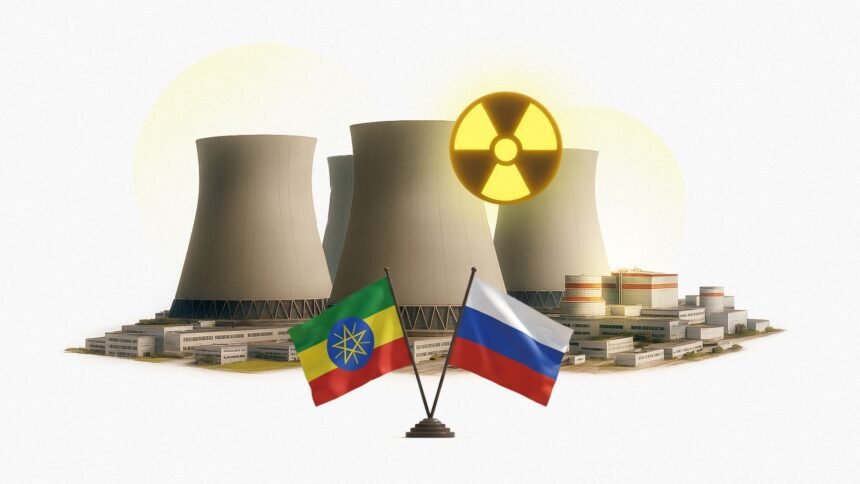Russia and Ethiopia have set in motion plans that could transform East Africa’s energy future. The two countries signed a document in Moscow that lays out a roadmap for the planning and eventual construction of Ethiopia’s first nuclear power plant. This ambitious move comes as Addis Ababa struggles to meet its growing electricity demands while positioning itself as a regional energy hub.
Rosatom, Russia’s state-owned nuclear corporation, will spearhead the technical and economic feasibility studies. Ethiopian Electric Company’s CEO, Ashebir Balcha, signed the deal alongside Rosatom’s director general, Aleksei Likhachev. The agreement not only sketches a timeline for construction but also includes provisions for training Ethiopian engineers and technicians, suggesting that Moscow is keen on building a long-term partnership rather than just a turnkey project.
For Ethiopia, this marks a major leap in its strategy to diversify energy sources beyond its vast hydropower dams, which have been controversial in recent years due to disputes with downstream countries over water use. Nuclear energy offers an alternative that could provide reliable baseload power and support Ethiopia’s ambitions to electrify its economy and export power to neighbours.
But this deal is about more than just megawatts. It is also a geopolitical signal. Russia, increasingly shut out of Western markets since the invasion of Ukraine, is seeking new spheres of influence. Africa, with its hunger for infrastructure investment, is an attractive partner. By entering the nuclear energy market in Ethiopia, Moscow strengthens its foothold on the continent, joining other projects in Egypt and potential plans in Niger.
Yet challenges loom. Nuclear power is capital-intensive, politically sensitive, and fraught with regulatory hurdles. Financing the reactors—likely to cost billions—remains unclear, as does Ethiopia’s capacity to maintain such complex technology. Critics argue that Ethiopia, still grappling with internal conflicts and economic pressures, might be biting off more than it can chew. Environmentalists also warn of risks associated with nuclear waste management in a country where institutional capacity remains limited.
Despite these concerns, Ethiopia is charging ahead, betting that nuclear energy can stabilise its grid and fuel industrial growth. If successful, Addis Ababa could become a model for other African states looking to leapfrog into high-tech energy solutions. For Russia, the payoff is strategic influence and a new export market for its nuclear technology at a time when Western sanctions are forcing it to pivot east and south.
This partnership signals that Africa’s energy landscape is entering a new phase—one where nuclear energy, long considered out of reach for all but the richest nations, may soon be part of the continent’s future. Whether this turns into a shining example of cooperation or an expensive white elephant will depend on how carefully both sides navigate the road ahead.










